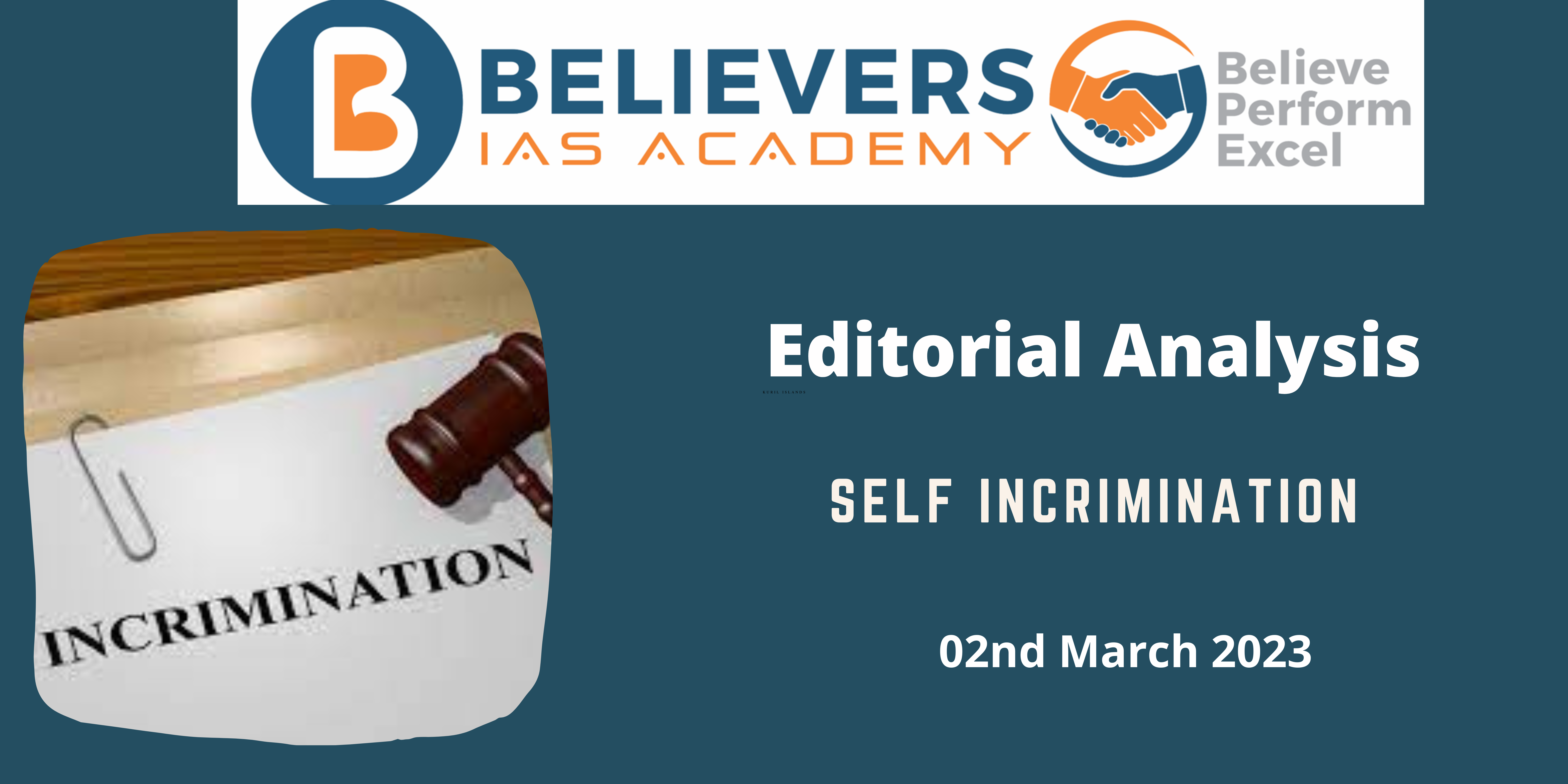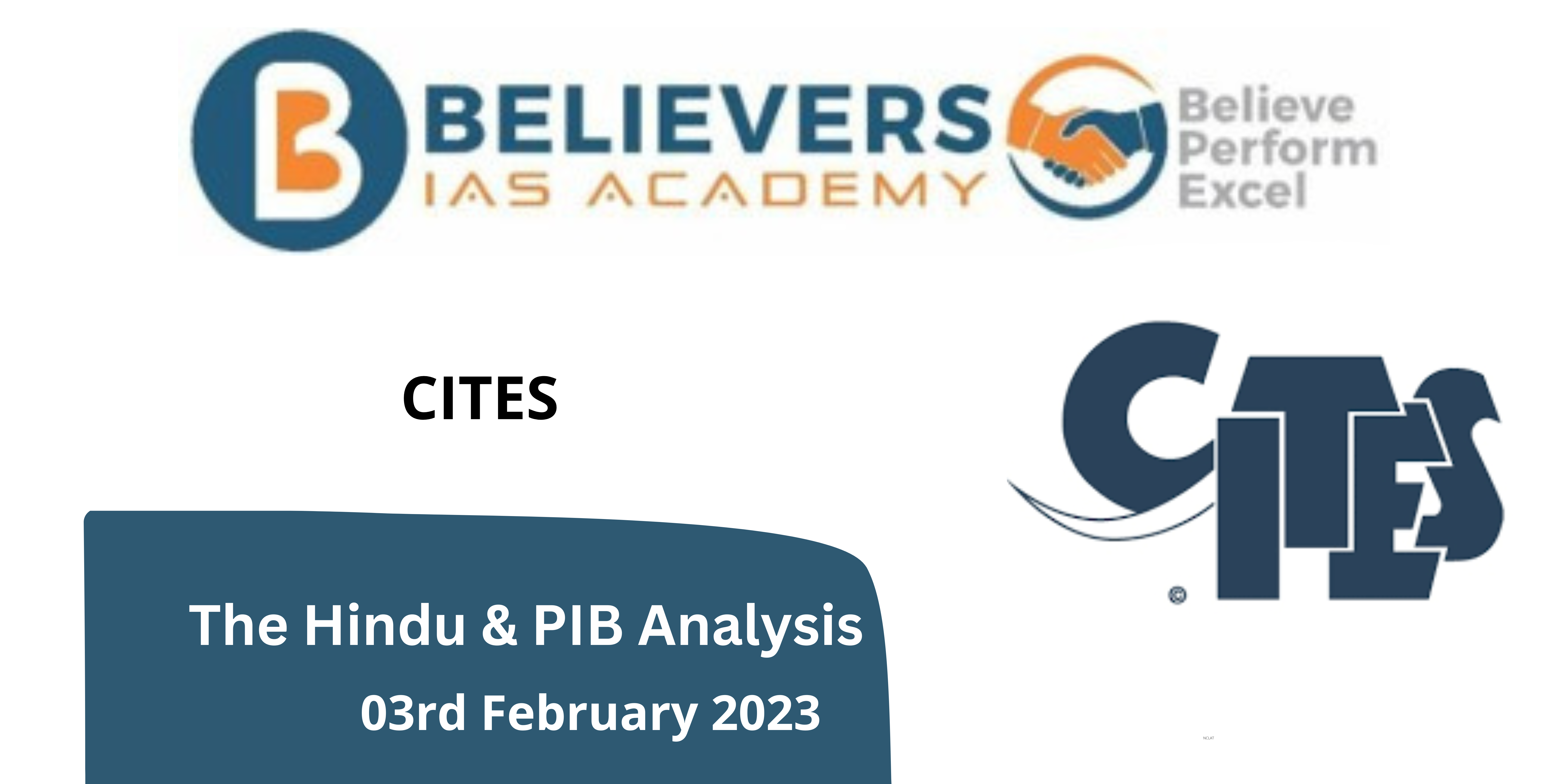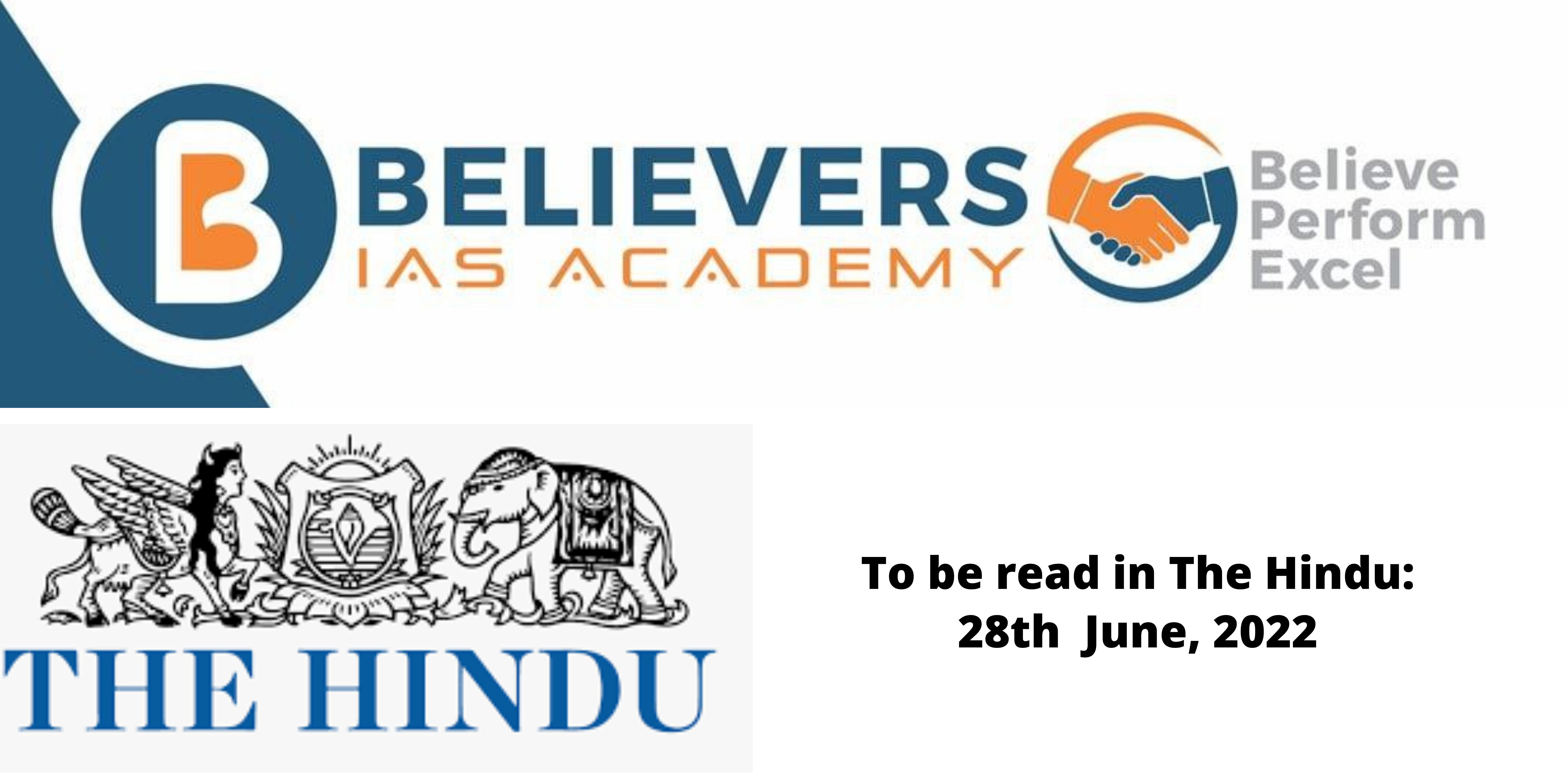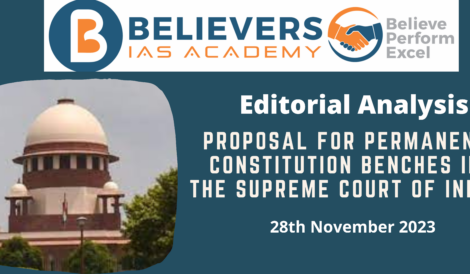SELF INCRIMINATION:
Current situation:
- As a Delhi court mandated that Manish Sisodia remain in CBI detention until March 4, the Supreme Court recently denied him bail in the excise policy issue.
- While Sisodia had the option of addressing the High Court under Section 482 of the CrPC, the Supreme Court dismissed his direct application to it under Article 32 of the Constitution.
- M K Nagpal, a special CBI judge, ordered Sisodia to be arrested since he “failed to furnish sufficient answers” during the probe. Sisodia had attempted to use his privilege against self-incrimination, but the court had dismissed his request.
What exactly does a person’s right to remain silent entail?
- Roman law is where the privilege against self-incrimination originated, but English law later recognised it as a separate right.
- No one may be forced to testify against himself in a criminal trial without receiving due process of law, according to the Fifth Amendment of the US Constitution. This choice is referred to as “taking/pleading the Fifth”.
- No individual accused of any crime shall be obliged to testify against himself, states Article 20(3) of the Indian Constitution.
- This constitutionally protected defence against self-incrimination fundamentally upholds the right to be presumed innocent until and unless proven guilty as well as the right to remain silent throughout an interrogation.
- Additionally, this privilege ensures that no one can be imprisoned for confessing to a crime after being coerced by the police.
What situations are protected by the court’s rule against self-incrimination?
- A person cannot be forced to testify against himself or reveal information that could be used against him in court since it is the responsibility of the state to prove the case against the accused beyond a reasonable doubt.
- In the well-known 1961 case The State of Bombay v. Kathi Kalu Oghad, an eleven-judge Supreme Court bench decided that capturing a suspect’s photograph, fingerprint, signature, and thumbprint would not infringe their right to remain silent. The court made note of the distinction between offering testimony and offering evidence.
- In its decision in Ritesh Sinha v. State of Uttar Pradesh in 2019, the Supreme Court expanded the definition of handwriting samples to also include voice samples, arguing that doing so would not breach the privilege against self-incrimination.
- Earlier that year, in Selvi v. State of Karnataka, the Supreme Court determined that performing a narcoanalysis test without the accused’s permission would violate their Fifth Amendment right to be exempt from being forced to testify against themselves.
- Nonetheless, obtaining a DNA sample from the defendant is permitted. According to Section 114 of the Evidence Act, the court may reach conclusions that are unfavourable to the accused if he refuses to provide a sample.
How did the Manish Sisodia case turn out?
- The prisoner acted evasively during the interrogation, so the CBI informed the special court that it would need custody of him.
- There cannot be a justification for the appeal for remand, according to Dayan Krishnan, a senior attorney who defended Sisodia: “Their argument is that I, Sisodia, did not reply as they had expected. I’ll explain why it doesn’t demand remand in great detail. He proclaimed that it would be a “travesty” if the judge permitted remand for self-incrimination.
What was the court’s justification?
- Judge Nagpal attempted to make a distinction between “providing legitimate replies” and claiming the privilege against self-incrimination in his ruling granting detention. What would be considered “valid” answers was not further clarified by the judge.
- While it is true that he cannot be expected to make self-incriminating statements, the order calls for him to at least partially comply with the IO’s questions in order to allow for a fair investigation and the upholding of justice.
- This can only be done during the accused’s interrogation while he is being detained in prison, the court’s reasoned judgement states. A real and valid response to the questions being posed to him regarding the same must be found in order to conduct a proper and fair investigation. “Many of his subordinates were found to have revealed specific material that can be viewed as incriminating against him,” the court reported. “Some documentation evidence against him has also already surfaced.”
Why did the SC reject Sisodia’s plea, and on what grounds?
- At this moment, the SC chose not to take an interest in Sisodia’s imprisonment. According to Article 32, which permits persons to petition the SC when their fundamental rights are abused, he had done so.
- Nothing in the CrPC “may limit or hinder the inherent powers of the High Court to issue such orders as may be necessary to give effect to any order under this Code, to prevent abuse of any Court’s process, or to otherwise ensure the objectives of justice,” as stated in Section 482 CrPC. Sisodia was told to “avail alternate remedies” by a bench chaired by Chief Justice of India D Y Chandrachud.
Conclusion:
- According to Article 20(3) of the Indian Constitution, everyone has a basic right against being forced to incriminate themselves. Yet, this right cannot be used to conceal information needed for a thorough investigation.
Source The Hindu




